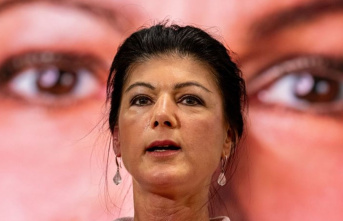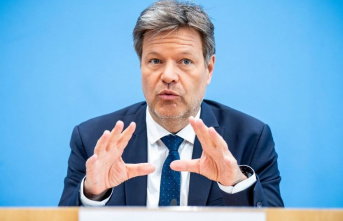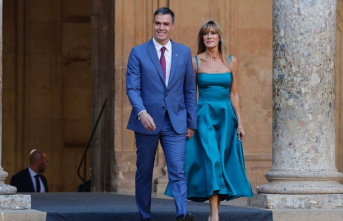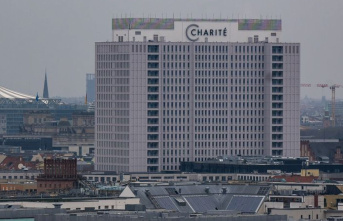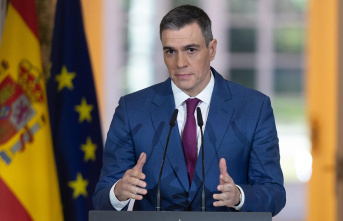At the first stop on his African trip in the Democratic Republic of the Congo, Pope Francis was euphorically celebrated. Today he travels on to South Sudan - a country where violence is still the order of the day despite several years of fragile government peace. The youngest country in the world takes last place on the Human Development Index of the United Nations (UN).
Similar to Congo, the people of South Sudan have great hopes for the visit of the head of the church. "I wish this visit to be a turning point for peace and harmony," said James Oyet Latansio, secretary of the South Sudan Council of Churches. Thousands of people have already arrived in the capital Juba from all over the country to witness the Pope's arrival at 3pm local time (2pm CET).
The hopes of the South Sudanese are not unjustified, as the former adversaries, South Sudan's President Salva Kiir and his former Vice President Riek Machar, had reached a peace agreement shortly after a visit to the Vatican. After gaining independence from Muslim-dominated Sudan in 2011, the country was mired in civil war for five years.
Permanent crisis mode
Pope Francis prayed with Kiir and Machar at the time, begging them for an end to the conflict. Then he suddenly knelt down in front of the two and other guests from South Sudan and kissed their feet. Since 2020, Machar - who fell out of favor seven years earlier because of an attempted coup - has been Vice President of South Sudan again.
However, the violence has remained and South Sudan is still a country in permanent crisis mode. Clashes recently escalated in the states of Jonglei and Pibor in the east of the country. Violence also breaks out in the Warrap or central Equatoria regions. Ethnic tensions and struggles over scarce resources erupt almost daily in deadly clashes between armed groups. According to the International Committee of the Red Cross (ICRC), the number of patients who had to be treated for gunshot wounds has recently skyrocketed again.
Violence is becoming increasingly brutal
"The impact of armed conflict and violence on the people of South Sudan is devastating," said Pierre Dorbes, head of the ICRC's Juba delegation. After the new clashes, the Red Cross has increased its emergency aid, because the violence is becoming increasingly brutal. "More and more frequently, we have to fly out injured people from rural areas because it's the only way to save their lives," says Dorbes.
In the north of the country on the border with Sudan, from which the south only became independent twelve years ago, there are repeated tensions. It's not just about conflicts between the Islamic north and the Christian south, but also about oil deposits in the border area.
Climate change is raging in South Sudan
In addition to the old conflicts, the country has long been struggling with a new threat: climate change. "South Sudan is one of the first prime examples of the effects of climate change," says Ania Okinczyc, Welthungerhilfe's office manager in South Sudan. The country experienced the third consecutive year of severe flooding in 2022. "Last year alone, around half of the country's area was completely under water," said Okinczyc. Although the dry season has begun and there is no more rain, the water is still standing on the fields and in the villages. According to the UN, at least 900,000 people have been affected by the floods.
There is no end in sight to the suffering of the people in South Sudan. The International Refugee Council (IRC) estimates that the number of people in need of humanitarian aid will rise to 9.4 million this year. Three quarters of the 11 million South Sudanese are already dependent on humanitarian aid.


